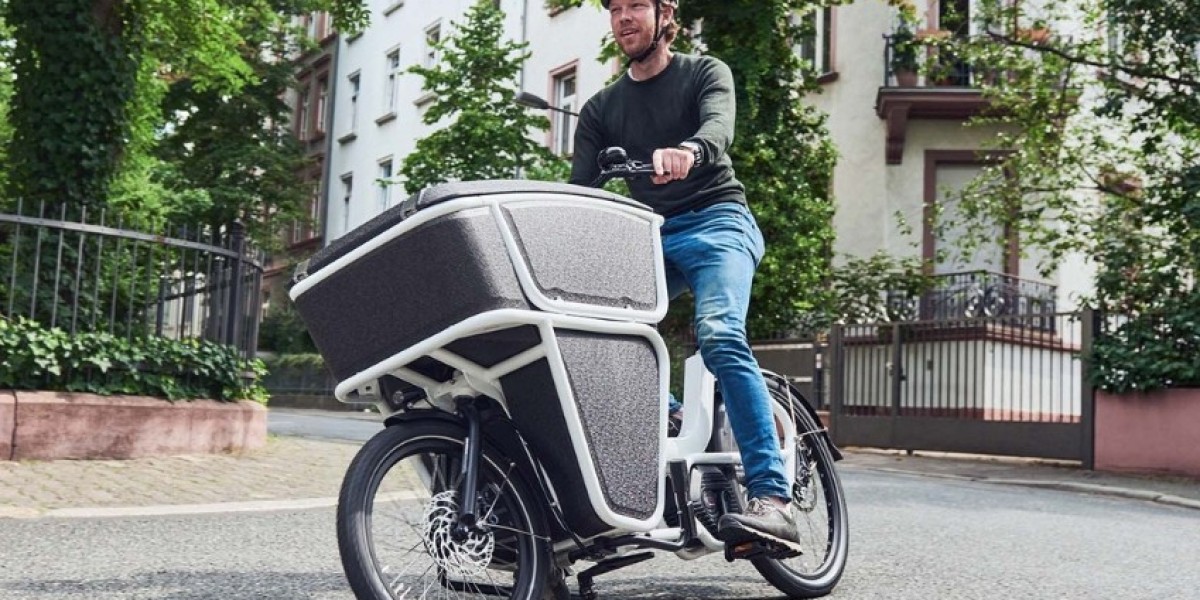Europe Electric Cargo Bikes Market Outlook
According to the report by Expert Market Research (EMR), the Europe electric cargo bikes market reached a value of USD 2.01 billion in 2024. Aided by the rising demand for sustainable urban mobility solutions and the growing need for efficient last-mile delivery options, the market is projected to grow at a robust CAGR of 33.90% between 2025 and 2034, reaching a value of USD 37.24 billion by 2034.
Electric cargo bikes, often equipped with pedal-assist or full electric drive systems, are designed to carry heavier loads than traditional bicycles. These bikes are gaining rapid popularity across Europe, particularly in urban settings where traffic congestion and emission regulations are encouraging alternatives to traditional fuel-based transport systems. From logistics and e-commerce companies to families and small businesses, a diverse range of users are increasingly adopting electric cargo bikes for both commercial and personal use.
The surging interest in low-emission vehicles, supported by favorable government policies and incentives, has further accelerated the adoption of electric cargo bikes across European cities. As governments continue to enforce stricter regulations on vehicular emissions and invest in cycling infrastructure, the market is expected to witness exponential growth over the forecast period.
Europe Electric Cargo Bikes Market Trends
Growing demand for sustainable delivery options - One of the most significant trends in the Europe electric cargo bikes market is the rapid adoption of sustainable delivery methods by businesses, especially in the e-commerce and food delivery sectors. With consumers becoming more environmentally conscious and urban populations growing, companies are increasingly turning to electric cargo bikes for their ability to make multiple deliveries efficiently within city limits while reducing carbon emissions.
Urban planning favoring micromobility - European cities are actively redesigning infrastructure to promote cycling as a mainstream mode of transport. Dedicated bike lanes, low-emission zones, and city-level green initiatives are all contributing to the wider acceptance and integration of electric cargo bikes. This trend is particularly evident in cities such as Amsterdam, Copenhagen, Paris, and Berlin, where governments are encouraging residents and businesses to shift to more eco-friendly alternatives for short-distance travel and goods transportation.
Advancements in electric bike technology - Innovation in battery technology, motor efficiency, and bike design has significantly improved the performance and usability of electric cargo bikes. Lighter frames, extended battery ranges, faster charging times, and enhanced payload capacities are enabling users to rely on electric cargo bikes for longer distances and heavier loads. These technological improvements are broadening the scope of applications for electric cargo bikes, from commercial logistics to personal transportation.
Drivers of Growth
Environmental regulations and emission targets - The implementation of stringent environmental regulations by the European Union and member states is a major driver of the electric cargo bikes market. Countries are striving to meet ambitious emission reduction targets set under the European Green Deal, and this has led to a surge in support for low-carbon transportation modes. Electric cargo bikes offer a practical and efficient solution for reducing greenhouse gas emissions in the transportation sector, especially in urban areas.
Rising fuel costs and operational savings - The volatility in global fuel prices has made operating traditional delivery vehicles increasingly expensive. In contrast, electric cargo bikes offer significantly lower operational and maintenance costs, making them a financially attractive option for businesses looking to optimize logistics operations. The reduced reliance on fuel also aligns with long-term sustainability goals, creating a strong economic incentive for adoption.
Government incentives and subsidies - Various national and local governments across Europe are offering financial support to promote the adoption of electric vehicles, including electric cargo bikes. These incentives include direct purchase subsidies, tax exemptions, grants for small businesses, and investment in charging infrastructure. Such initiatives are lowering the entry barriers and encouraging both consumers and businesses to transition toward cleaner transport solutions.
Request your free report sample now and see the contents firsthand – https://www.expertmarketresearch.com/reports/europe-electric-cargo-bikes-market/requestsample
Industry Analysis
Dominance of the logistics and delivery segment - Within the Europe electric cargo bikes market, the logistics and delivery segment holds a substantial share, driven by the increasing need for sustainable last-mile delivery. Major courier and e-commerce companies are adopting electric cargo bikes to navigate congested urban environments efficiently. These bikes allow for quick delivery turnarounds without the parking issues and traffic delays commonly faced by vans and trucks.
Strong presence of regional manufacturers - Europe is home to several leading manufacturers of electric cargo bikes, including both well-established companies and emerging startups. Countries such as Germany, the Netherlands, and Denmark serve as manufacturing hubs for high-quality, innovative electric cargo bikes tailored to various urban and commercial needs. The presence of these regional players contributes to a competitive and dynamic market landscape.
B2B and B2C applications expanding - While the commercial segment remains dominant, the B2C market is also growing rapidly. Urban families, eco-conscious consumers, and small retailers are beginning to adopt electric cargo bikes for their everyday needs, such as school runs, grocery shopping, and personal mobility. This diversification of use cases is opening new growth avenues for manufacturers and service providers.
Challenges and Opportunities
Infrastructure limitations - Despite growing investments in cycling infrastructure, several European cities still face limitations such as inadequate bike lanes, lack of secure parking, and insufficient charging stations. These infrastructure gaps can deter potential users from adopting electric cargo bikes, particularly for larger or longer-distance transport requirements. Addressing these issues through continued public and private investment is crucial for the market’s sustained growth.
High initial investment costs - Electric cargo bikes generally require a higher upfront investment compared to conventional bikes or even some small motor vehicles. Although operational savings offset this cost over time, the initial expense may deter small businesses or individual buyers. However, this challenge also presents an opportunity for financial service providers to offer leasing, rental, and financing options tailored to this segment.
Opportunity in shared mobility solutions - The concept of shared electric cargo bikes is gaining traction, especially in urban centers with a strong focus on sustainability. These solutions allow users to rent electric cargo bikes for short durations, promoting accessibility without the burden of ownership. Shared micromobility services present a promising opportunity for startups and urban planners to cater to a wider audience and increase the utilization of electric cargo bikes.
Europe Electric Cargo Bikes Market Forecast
The Europe electric cargo bikes market is set to witness extraordinary growth over the forecast period, fueled by increasing environmental consciousness, favorable regulatory support, and technological advancements. As more businesses and individuals embrace electric cargo bikes for their daily transportation and delivery needs, the market is expected to expand rapidly both in value and volume.
Between 2025 and 2034, the market is projected to grow at a CAGR of 33.90%, reaching USD 37.24 billion by 2034. This growth will be supported by continuous innovation, policy-driven adoption, and the shifting mindset of European consumers and businesses towards greener, more efficient transport solutions. As cities evolve to prioritize sustainability and ease of mobility, electric cargo bikes will play a central role in shaping the future of urban transportation across Europe.
Read Our Trending Reports:
Strategy Consulting Market: https://www.expertmarketresearch.com/reports/strategy-consulting-market
Australia Consulting Services Market: https://www.expertmarketresearch.com/reports/australia-consulting-services-market
United States Fast Casual Restaurant Market: https://www.expertmarketresearch.com/reports/united-states-fast-casual-restaurant-market
Media Contact:
Company Name: Claight Corporation
Email: sales@expertmarketresearch.com
Toll Free Number: +1-415-325-5166 | +44-702-402-5790
Address: 30 North Gould Street, Sheridan, WY 82801, USA
Website: https://www.expertmarketresearch.com







